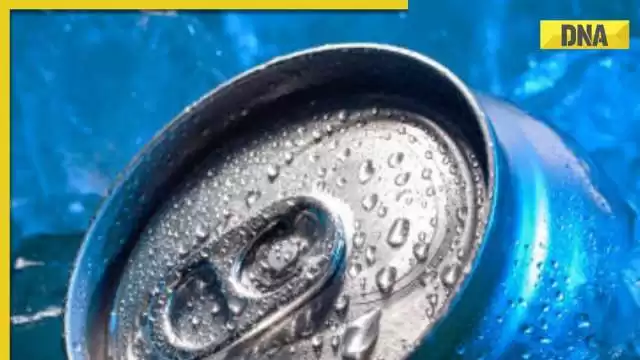New Study Investigates the Connection between Aspartame in Cold Drinks and Possible Cancer Risks, WHO Caution Raises Concern
WHO warns that aspartame in cold drinks may cause cancer.
Are you one of those people who can't get enough of cold drinks, guzzling down multiple bottles a day without a care in the world? Well, here's a sobering thought that might make you think twice - even your beloved cold drinks can potentially be linked to cancer. And this warning doesn't come from just anyone; it comes straight from the authoritative World Health Organization (WHO), backed by extensive research and analysis.
The culprit, according to WHO, is aspartame - that artificial sweetener lurking in popular soft drinks like Coca-Cola and hiding in chewing gum. WHO has recently identified aspartame as a potential cancer risk, leaving many people questioning the safety of their favorite beverages.
You might be wondering, "What has changed all of a sudden?" The answer lies in the two types of soft drinks available - regular and diet (sugar-free). Regular cold drinks use sugar as their sweetening agent, while diet versions rely on artificial sweeteners like aspartame. It is these artificial sweeteners that have raised concerns, as they have the potential to be carcinogenic.
Let's dive into the history of aspartame to understand it better. Aspartame is an organic compound, scientifically known as a methyl ester, and it is synthesized in laboratories. Interestingly, it was discovered by chemist James M. Schlatter back in 1965, and it received approval from the US Food and Drug Administration (FDA) in 1981 for use in certain dried fruits. It then found its way into beverages in 1983.
Fast forward to today, and a staggering 95% of aspartame is used in the sugar-free soft drink industry, making it incredibly prevalent. Not only that, but up to 97% of sugar-free tablets and powders on the market also contain this sweetener. Even the sugar-free chewing gum industry heavily relies on aspartame.
Now, some might still believe that consuming sugar-free or diet cold drinks is harmless. However, they are in for a rude awakening. While WHO initially classified aspartame as a mere food additive, concerns have been steadily mounting. Numerous international studies have uncovered a shocking 92 potential side effects associated with continuous consumption of this deceptive sweetener.
Let's take a moment to grasp the seriousness of the issue. Research indicates that prolonged aspartame use can lead to alarming health problems, ranging from something as seemingly minor as blurred vision to severe consequences like blindness. It can also cause ringing in the ears and hoarseness, potentially leading to complete deafness. Even more concerning is the link between chronic aspartame consumption and high blood pressure, breathing difficulties, migraines, memory impairment, epileptic seizures, depression, irritability, sleeplessness, and complications in controlling diabetes. On top of all this, it can contribute to hair loss and erratic weight fluctuations.
If that isn't alarming enough, brace yourself for even more distressing revelations. The reputable New Harvard School of Public Health in England has revealed that drinks containing artificial sweeteners are directly responsible for nearly 200,000 deaths each year. Adding fuel to the fire, the International Agency for Research on Cancer (IARC) is on the verge of classifying aspartame as a carcinogen, highlighting its potential to cause cancer in humans.
One would expect that with such grim findings, regulatory bodies would swiftly mandate warning labels on products containing aspartame, including cold drinks. Surprisingly, that hasn't happened yet. Instead, the responsibility of consuming these cancer-causing cold drinks remains solely on individuals, with no ban imposed on harmful substances like aspartame.
The most troubling aspect of this whole situation is that, despite the growing awareness of these harmful effects, the cold drink industry continues to thrive. In India alone, the average consumption of cold drinks per person has skyrocketed from a mere 44 bottles annually in 2016 to a staggering 84 bottles in 2021. However, even more astonishing figures emerge from countries like the United States (with a shocking 1496 bottles per person), Mexico (1489 bottles), Germany (1221 bottles), and Brazil (537 bottles).
It is truly perplexing how, despite being well-informed about the health risks associated with increased cold drink consumption, including the sale of diet and sugar-free options that are essentially poison-laced, the popularity of cold drinks shows no sign of diminishing.












Comments on New Study Investigates the Connection between Aspartame in Cold Drinks and Possible Cancer Risks, WHO Caution Raises Concern